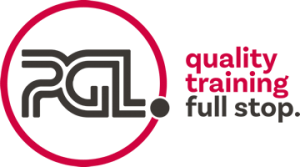How to Select the Right Training Organisation
Training is a critical function for any progressive business. It’s an investment in your current and future growth plans and demonstrates a commitment to your employees that you consider their personal development key to sustainability and success. So, it’s vitally important that any potential training organisation you may choose has the correct aptitude, knowledge, and skills to provide the level of support and service you may desire and deserve.
The training sector as a whole, but particularly health, safety, plant, and NVQs can be complex at times, with many different awarding bodies, course standards, and pricing rates to navigate. So, what do you look out for when selecting a training provider? That’s the million-dollar question right! The honest answer is that there are so many providers on the market touting for your work, but no one provider is the same as the other. But, of course, there are credible ones and then there are……not so reliable ones.
Commenting on those that perhaps are not quality driven or competitive is not something we can remark on. But there are a few things to look out for when selecting a credible training provider, and the first few things we’d strongly advise on are to delve into their history and background. How long have they been active for, what’s their reputation like, do they have sufficient staff and resources and are they financially sound.
Secondly, and one we feel is as equally important to consider is their real-time experience in the sector you work in. Training and tutors must be relatable to the clients, and candidates, and be able to talk and converse naturally. Some courses, although exciting and practical, are pretty generic such as first aid, fire, manual handling, etc., as many awarding bodies set the learning outcomes and assessing criteria. However, if you’re looking for courses such as those contained within the CITB Site Safety Plus suite then our point on relatability is super valid.
And lastly, we recommend you look out for testimonials which would give you a strong indicator of previous client satisfaction whilst identifying other authoritative signals such as accreditations and scheme approvals.
What Questions to Ask Your Training Provider
With so many questions that can be asked, we think the top 5 considerations might be the below. But, it really does depend on what you are looking for, your expectations, coverage and overall business strategy.
When are you available for a meeting?
This would be our first question and intention. Let’s face it, emails and websites are great, but to truly get a feel for a potential working collaboration, a face-to-face or team meeting is a must.
Can you provide a range of insurance and assurances for the competency of staff and tutors/assessors (as required) and any quality management systems?
Those providing you advice must be competent otherwise you can find yourself paying a lot of money for training that is either not fit for purpose or that does not match your training programme ambitions.
Where, when and how frequently do you run training courses?
All businesses like to plan and forecast training, so to have quick access to a training calendar, or similar, is super useful and speeds up the process for all. Are courses delivered on site, in classrooms, online… these are all important factors when selecting a provider?
What are the terms and conditions applicable to each training course or NVQ?
Changes happen. For clarity, and to avoid disappointment, be aware of the terms and conditions used by the provider. Just like you, training providers are a business and therefore many costs are associated with the administration of training courses and so, fees and charges may incur charges.
What makes you different from other providers?
Shop around and take notice of customer service and overall customer care. The training course delivery must be on equal par as the experience received when:
-
- Seeking information about a training course or NVQ
- Receiving timely information about the course
- Post customer care once the course has been completed and you require pass/fail information and certification.
In summary, take your time when selecting a training provider. Ensure you carry out due diligence and any performance indicators and expectations are clear.
